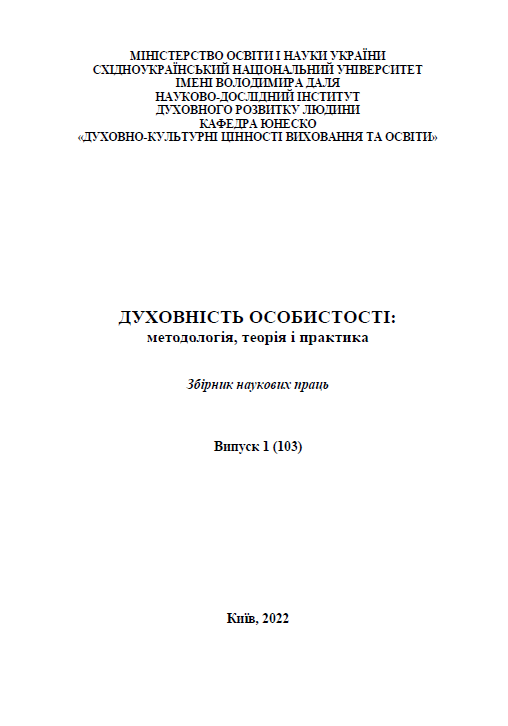ENVIRONMENTAL SAFETY AS A COMPONENT OF UKRAINIANS’ CULTURE OF PEACE
DOI:
https://doi.org/10.33216/2220-6310-2022-103-1-247-254Keywords:
citizen of Ukraine, environmental pollution during the war, environmental safety, culture of peaceAbstract
The article contains the results of scientific research on the peculiarities of formation of environmental safety skills as a component of Ukrainians’ culture of peace in the context of social challenges during the war in Ukraine. The state of formation of students’ environmental competence in the context of military intervention is analysed and a sufficient theoretical level of formation of environmental competence is shown, but there is a low level of the ability to apply knowledge of the paradigm of safe behaviour and implementation of health competence in difficult environmental circumstances. Theoretical and practical aspects of significance of the concept of "culture of peace" as a mutual security of humankind in all its diversity with a deep sense of identity and relatedness with the living earth and the absence of the need for violence are considered. Environmental safety is defined as the level of protection of vital personal, social, environmental, and state interests from real or potential threats caused by anthropogenic or natural factors. The UN General Assembly's Program of Action on the Culture of Peace was analysed and the requirements for a culture of peace were determined (respect for life, end of violence, respect for sovereignty and territorial integrity, human rights and freedoms, peaceful settlement of conflicts, development and environmental needs of present and future generations for sustainable development). Peculiarities of safe social interaction with other people, safe daily activities in the context of formation of environmental culture as a component of the culture of peace during the war in Ukraine are determined. The need to develop students’ abilities to use the acquired knowledge in their own health care activities especially during the restoration of areas affected by military intervention are highlighted.

